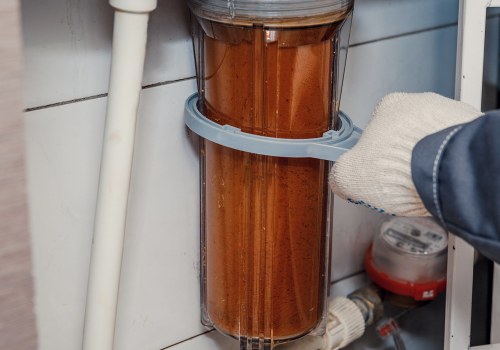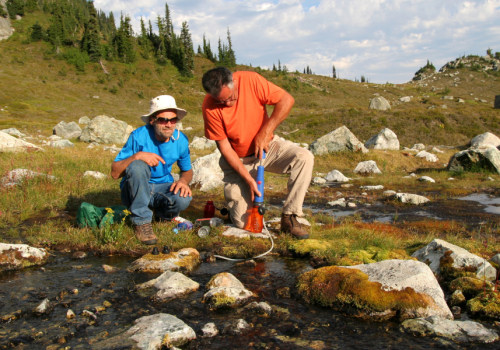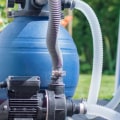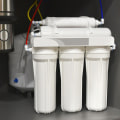Crystal Clear Choices: The Importance of Accessible Water Filters
Are you aware that clean water is the lifeblood of our existence? Without it, we cannot survive.
This article will explore the significance of clean water and why ensuring access to safe drinking water is crucial for our well-being.
Through a technical lens, we will delve into the health implications of unsafe drinking water, global water scarcity, the role of infrastructure in providing clean water, innovations in water purification technology, sustainable water management practices, international efforts addressing water issues, and empowering communities through education and advocacy.
Get ready to dive deep into this vital topic!
Key Takeaways
• Water management and collaboration are crucial for addressing water challenges and ensuring access to safe drinking water for all.
• Funding initiatives supported by WHO are essential for achieving sustainable management and improving access in underserved communities.
• Empowering communities through education and advocacy promotes understanding of water resources, encourages conservation and sustainable practices, and enables informed decision-making.
• Advocating for water rights, policies, and conservation improves water quality and availability, addresses water scarcity and pollution, and protects fragile ecosystems
The Health Implications of Unsafe Drinking Water
You need to understand the health implications of drinking unsafe water. Consuming contaminated water can lead to various health risks and increase the likelihood of contracting waterborne diseases.
According to research, inadequate access to clean drinking water is responsible for a significant burden of diseases worldwide. Waterborne diseases such as cholera, typhoid fever, and dysentery are directly linked to ingesting contaminated water. These diseases can cause severe diarrhea, vomiting, dehydration, and death.
Unsafe water can also contain harmful chemicals and pollutants that pose long-term health risks, such as cancer and developmental disorders.
Therefore, ensuring access to safe drinking water is crucial for safeguarding public health and preventing the spread of waterborne diseases.
Global Water Scarcity: Understanding the Challenge
Understanding the challenge of global water scarcity is crucial in addressing the issue. Water scarcity occurs when there is insufficient freshwater to meet the needs of a region's population. This problem is exacerbated by climate change, which affects rainfall patterns and leads to more frequent droughts. The impact of climate change on water resources is significant, as it reduces the availability of freshwater for drinking, agriculture, and industrial use.
To tackle this challenge, various solutions have been proposed. One approach is improving water management practices through efficient irrigation systems and reducing water wastage. Another solution involves investing in technology to desalinate seawater or purify contaminated water sources.
Furthermore, promoting conservation efforts and raising awareness about responsible water usage is essential to mitigating global water scarcity. These initiatives aim to ensure equitable access to safe drinking water for all individuals while protecting ecosystems that rely on clean freshwater sources.
The Role of Infrastructure in Providing Clean Water
In this discussion, you will explore the importance of water treatment and distribution systems and the challenges developing countries face in establishing and maintaining them.
Access to clean and safe drinking water is crucial for public health, and adequate infrastructure ensures availability.
However, developing countries often need help with numerous obstacles, such as limited financial resources, lack of expertise, and inadequate infrastructure development, which hinder their efforts to provide adequate water treatment and distribution systems to their populations.
Importance of Water Treatment and Distribution Systems
Make sure your water treatment and distribution systems are efficient to ensure access to safe drinking water for everyone. Water treatment and distribution systems are crucial in maintaining water quality standards and safeguarding public health.
Here are two key reasons why these systems are essential:
• Contaminant Removal: Water treatment processes such as coagulation, filtration, and disinfection remove harmful contaminants like bacteria, viruses, chemicals, and pollutants from the water. This ensures that the water you consume meets the required safety standards.
• Equal Access: Efficient distribution systems ensure that clean drinking water reaches all community members without discrimination or disparities. Proper infrastructure and maintenance of pipelines, reservoirs, pumps, and storage tanks guarantee reliable delivery of safe water to every household.
Challenges in Developing Countries
To overcome challenges in developing countries, you must prioritize improving water treatment and distribution systems. Access to clean and safe drinking water is crucial for public health and well-being.
Unfortunately, many developing countries face significant obstacles in providing adequate sanitation solutions. One of the main challenges is the prevalence of waterborne diseases caused by contaminated water sources. According to the World Health Organization (WHO), around 2 billion people consume unsafe drinking water globally, leading to approximately 485,000 deaths yearly due to diarrheal diseases alone.
These staggering statistics highlight the urgent need for improved water treatment and distribution systems in developing countries. Investing in infrastructure upgrades, implementing effective purification methods, and promoting hygiene practices can significantly reduce the incidence of waterborne diseases and ensure access to clean drinking water for all individuals in these regions.
Innovations and Technologies for Water Purification
You can learn about the latest innovations and technologies for water purification. Here are some remarkable advancements in water purification methods and emerging water technologies:
• Membrane Filtration: This method uses a membrane to remove impurities and contaminants from water, ensuring clean drinking water.
• UV Disinfection: Ultraviolet (UV) light kills bacteria, viruses, and other harmful microorganisms in the water.
• Reverse Osmosis: By applying pressure to push water through a semipermeable membrane, this process effectively removes salts, chemicals, and pollutants.
• Nanotechnology: Nanoparticles are utilized to adsorb or neutralize contaminants in the water at a tiny scale.
These cutting-edge techniques offer efficient and cost-effective solutions for purifying water sources.
As we explore new possibilities, these innovative approaches hold great potential for addressing global challenges related to safe drinking water access.
Sustainable Water Management: Conservation and Preservation
Sustainable water management involves implementing strategies for conserving and preserving our valuable water resources. It is crucial to adopt sustainable water practices to ensure the availability of clean and safe water for future generations. Effective water resource management plays a vital role in achieving this goal. By understanding the current state of our water resources and applying data-driven approaches, we can identify areas where conservation efforts should be focused.
A critical aspect of sustainable water management is reducing water waste through efficient irrigation systems and promoting responsible consumption habits. Implementing technologies such as smart meters and sensor-based monitoring can help track usage patterns and identify opportunities for improvement.
Additionally, protecting watersheds, wetlands, and other natural habitats helps preserve the quality of our water sources by preventing pollution and maintaining ecological balance. This requires coordinated efforts between government agencies, communities, and industries to enforce regulations safeguarding these critical ecosystems.
International Efforts and Organizations Addressing Water Issues
The World Health Organization (WHO) has actively addressed global water issues through various initiatives and partnerships. International collaboration is crucial in tackling the complex challenges of water management, ensuring access to safe drinking water for all.
WHO works closely with governments, NGOs, and other stakeholders to develop innovative solutions and implement sustainable practices. One such initiative is the Global Water Safety Plan, which provides a comprehensive framework for assessing and managing risks to water quality.
Additionally, WHO supports funding initiatives to improve access to clean water in underserved communities. These efforts have resulted in significant progress towards achieving Sustainable Development Goal 6, which aims to ensure the availability and sustainable management of water and sanitation for all by 2030.
Through continued international collaboration and targeted funding initiatives, we can make further strides toward a world where everyone can access safe drinking water.
Empowering Communities: Education and Advocacy
Water education is crucial in empowering communities to understand the importance of water resources and conservation. By providing individuals with knowledge about water management, sustainable practices, and the impact of pollution, they can make informed decisions and take action to protect their local water sources.
Advocating for water rights and policies is equally important as it ensures that access to clean drinking water is recognized as a fundamental human right and that effective regulations are in place to maintain water quality and availability for all.
Importance of Water Education
Understanding the importance of water education can empower you to make informed choices about conserving and protecting this vital resource. Water scarcity awareness and community engagement are crucial aspects of water education that deserve attention.
Here are three key reasons why water education is essential:
1. Environmental Impact: By learning about water conservation techniques and understanding the impact of our daily activities on water resources, we can reduce our ecological footprint and help preserve natural habitats.
2. Health Benefits: Proper education about safe drinking water practices ensures that individuals have access to clean and uncontaminated water, reducing the risk of diseases caused by poor sanitation.
3. Sustainable Development: Water education promotes the responsible use of water resources, which is essential for long-term sustainability. It encourages individuals to participate actively in implementing efficient technologies and practices that conserve water.
Advocating for Water Rights and Policies
Advocating for water rights and policies involves educating communities on the importance of equitable distribution and sustainable management of this essential resource.
Water rights advocacy aims to ensure fair access to clean water for all individuals, regardless of socioeconomic status or geographical location.
Governments can address water scarcity, pollution, and inadequate infrastructure by implementing effective policies.
Developing comprehensive strategies that promote responsible water usage while protecting fragile ecosystems is crucial.
Research shows that policy implementation focused on conservation measures and efficient water allocation can significantly improve water quality and availability.
Additionally, public participation plays a vital role in shaping these policies, allowing communities to voice their concerns and contribute towards long-term sustainability.
Overall, advocating for water rights and policies requires a collaborative effort from governments, organizations, and citizens to achieve lasting change in ensuring everyone's access to safe drinking water.
Frequently Asked Questions
How does contaminated drinking water affect the overall health of individuals and communities?
Contaminated water affects individuals and communities by causing various public health impacts. It leads to diseases like cholera, diarrhea, and typhoid fever, increasing mortality rates and decreasing overall well-being.
What are the leading causes of global water scarcity, and how does it impact access to clean drinking water?
Water scarcity is primarily caused by climate change, population growth, and inadequate infrastructure. It severely impacts access to clean drinking water, leading to health issues, economic instability, and social unrest in affected communities worldwide.
How does infrastructure play a role in ensuring clean water access in urban and rural areas?
Water infrastructure, such as piped networks and treatment plants, is essential for providing access to clean water in urban and rural areas. For example, constructing a well and sanitation facilities would ensure safe drinking water in a hypothetical rural community.
What are some innovative technologies and methods used for water purification?
Water filtration methods and desalination technologies are innovative ways to purify water. Filtration techniques like reverse osmosis remove contaminants, while desalination processes turn seawater into freshwater. These advancements ensure access to clean drinking water.
How can individuals and communities actively contribute to sustainable water management and conservation efforts?
To actively contribute to sustainable water management and conservation efforts, you must engage in water conservation initiatives and promote community engagement. By conserving water and involving others, we can ensure a brighter future for our precious resources.
Earthwise Water Filters Phoenix
922 N Colorado Street, Gilbert AZ 85233
(602) 878-6160








